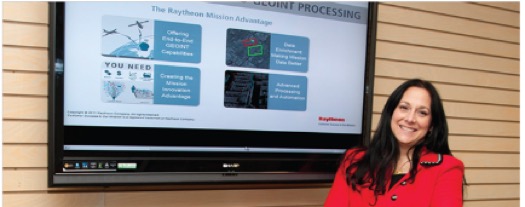Here are some ways to shine during that next work gathering
How many times have you realized a meeting you’d been dreading is on the calendar for that day? It happens to everyone, but chances are, you’re not looking forward to the meeting because it’s not a comfortable environment for you. Not surprisingly, many professionals don’t enjoy going to meetings. One of the biggest reasons? They’re unsure how — or what — to contribute in a roomful of colleagues.
But meetings don’t have to be the bane of your professional existence. With these quick and easy ways to get comfortable and become an active participant, you just might find that meetings (in person or by phone) can be a platform to make your mark and move forward in your professional career.
Contributing to meetings starts even before you sit down at the table or pick up the phone. Make it a point to find out the agenda well in advance. This information will allow you to research the meeting topics and think about what needs to be accomplished. Taking the time to review any meeting materials will also allow you to formulate your thoughts and determine what you’d like to say once the meeting begins.
Take a few minutes to ease any anxiety before the meeting starts. For some, this may mean simply taking a few deeps breaths while waiting for the group to assemble. Others may need to review any notes they made while researching the meeting topics, repeat positive thoughts to themselves, or even take a quick walk to clear their head. Regardless of what works for you, take time before the meeting to relax and focus, and you’ll be more likely to contribute once the discussion begins.
Many professionals find that participating in meetings is easier if they do it early on. The longer you wait to contribute, the more difficult it can become. Speaking up at the start of the discussion gives you a better chance of saying something that hasn’t been said and highlighting a topic or issue that’s relevant and important to you. There’s also less chance that the conversation will veer into a topic you’re less familiar with or are uncomfortable speaking about.
There are many ways to shine in meetings. You can comment on a specific topic or agenda item, support someone else’s comments, or ask clarifying questions to ensure everyone is on the same page. If you’re not comfortable making a lengthy statement or presentation, keeping your comments short and to the point can be just as effective.
Contributing in meetings isn’t easy, and even many seasoned professionals struggle with it. Don’t force yourself to respond each time a point is made; rather, listen, process what is being said, and focus on making a brief, meaningful contribution. Not only will this seem more doable, but your colleagues will appreciate your insight.
On Topic
 Dr. Leslie A. Ledda is a principal engineering fellow and director of research and development at Raytheon Intelligence, Information, and Services. She holds a doctorate in mathematical sciences from the University of Texas at Dallas and is involved with a variety of organizations, including AISES, the National Geospatial-Intelligence Agency, and the Network for Military Personnel and Defense Industry Professionals. No stranger to meetings, Dr. Ledda offers several tips for getting the most out of group exchanges at work, as well as larger conferences.
Dr. Leslie A. Ledda is a principal engineering fellow and director of research and development at Raytheon Intelligence, Information, and Services. She holds a doctorate in mathematical sciences from the University of Texas at Dallas and is involved with a variety of organizations, including AISES, the National Geospatial-Intelligence Agency, and the Network for Military Personnel and Defense Industry Professionals. No stranger to meetings, Dr. Ledda offers several tips for getting the most out of group exchanges at work, as well as larger conferences.
Why is it important to contribute in meetings?
Meetings are a great opportunity to learn new technology topics as well as a chance to build and expand your professional network. Active participation in meetings also provides a wealth of public speaking experience that will benefit you in your career as well as other parts of your life.
How can someone make contributing in meetings a priority?
Think of meetings as a continuing education opportunity and a chance to make new connections with your peers as well as leaders in your technology area. You may even find a mentor!
What kind of preparation can help make contributing in a meeting easier?
Most meeting organizers provide an agenda that lists the sessions/topics and speakers. Review any background information, and then do some internet searches before the meeting to better understand the experience of the speakers, information about their company or organization, and the current state of the art/state of practice for their topic. The information you gather will provide context, allow you to absorb more of the information during the presentation, and enable you to formulate questions for the speaker — either during the question-and-answer period or during one of the networking breaks. Don’t be shy about bringing those notes with you to the meeting, along with a notepad to write down important points so that you don’t have to keep everything about the meeting in memory.
Arrive on time so that you’re not stressed out by having to run into the meeting at the last minute or after it has started. If the meeting is a conference or workshop, bring a bottle of water and possibly a small snack in case you are hungry later in the day. (I always travel with emergency chocolate!)
What can people do to avoid getting overwhelmed and deciding not to participate?
It is easy to get overwhelmed by meetings, especially early in your career. I’ve found that preparing beforehand is helpful. Learn as much as you can about the topics and speakers so you’ll have a starting point for the discussion and you’re not overwhelmed having to absorb everything at once. Listen and focus on the discussions — don’t let yourself get distracted by your phone. Write down questions or actions so that follow-up is easier. Also recognize that some meetings, especially technical conferences, will provide more information than can be digested at once. Absorb the main points in the meeting and take notes so you can do some independent study afterward to fill in the gaps for topics that were of particular interest to you.
How can someone recover from a bad participation experience?
Try to let go of that bad experience. Learn what you can from the situation and move forward. Don’t keep beating yourself up about it. Everyone has had a less-than-perfect meeting experience — either as a presenter or as a participant. What’s important is that you learn from those experiences and continue to grow. If you felt unprepared, then do more preparation for the next meeting. If you were uncomfortable speaking in a group, then practice in front of some trusted friends. Start by explaining a topic that you’re very familiar with, or by telling a story. Work up to explaining more difficult topics and fielding questions. Practice engaging with other participants while speaking clearly and concisely. If your feet were killing you at the end of the day because you chose fashionable rather than comfortable footwear, then please wear those comfortable shoes for the next meeting. (I had to repeat this one several times before I finally learned!)
What else is important to keep in mind for improving contributions in meetings?
Remember that you’re not alone. Many people struggle with meeting participation. Still, meetings can be a great way to increase your knowledge, develop your professional network, and enhance your career. Realize that becoming proficient at contributing to meetings is an acquired capability. The more you practice and gain experience, the easier it will become.














